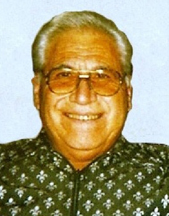1922 – 2000
Gifted theoretician, educator and staff trainer
A pioneer social work educator in group and organizational techniques, John Wax was a devoted staff member of the Veterans Administration for 50 years. Educated at the University of Chicago, Wax served as Social Work Supervisor for the Denver, CO VA Hospital (1947-1957) and then Chief of Social Work Service at the Palo Alto California Medical Center from 1957 to 1997.
In addition to his administrative duties, Wax wrote widely for social work publications on both direct practice and administrative issues, consulted with numerous hospitals and social work departments throughout the United States, helped develop leadership training programs for the VA, supervised leadership trainees from all over the country, and instituted numerous programs of social work and interdisciplinary staff development within both the VAMC, Palo Alto, and other VA facilities in the San Francisco Bay area.
Wax’s particular focus was on assisting social workers to develop their power to implant and realize social work values in the health care system as well as to gain the recognition of others for the immense contributions made by the profession to the improvement of care for patients and the betterment of interdisciplinary staff relations.
Years before it became fashionable in feminist studies and race relations, Wax pioneered the widespread use of the concept of the “victim mentality” and described the ways in which it was inhibiting the development of effective social work practice in the hospital setting. He urged social workers to develop their professional power as a way to overcome this unfortunate attitude and achieve positive change in their professional and organizational lives. Wax also made significant contributions in the areas of staff training and education. He led the way in the development of time-limited and group-oriented supervision for social work students and trainees. He also helped to reshape the ideas of social group treatment and intervention as they were used in hospitals of that time by becoming a strong advocate of “mixed” patient groupings as a vehicle for stimulating and improving patient interaction and healing.
Upon his retirement in 1997, John Wax left a legacy of brilliant social work leadership development programs and sound financial and resource investment in his department and in the hospital and health care environment in the community at large. During his retirement years he developed an interest in consulting and working with staff who provided hospice and social service to the dying and terminally ill. Until his death, he continued to write professionally, while also consulting with various social work and other heal care staff in an effort to continue improvements both in the health care field and the
larger society.
